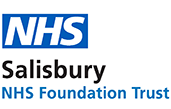Treatment with medication is known as systemic anti-cancer treatments (SACT), this can include treatments such as chemotherapy and immunotherapy.
This treatment may be given either as tablets or be injected into your body. These drugs travel in the blood stream helping to stop cancer cells wherever they are in the body. Specially trained staff give the treatments.
SACT is usually given over a number of weeks, which may or may not be followed by a rest period. This pattern constitutes one cycle of treatment, and a series of treatment cycles is referred to as a course of treatment.
The majority of people do not have to stay in hospital for this treatment, it will be given on the day unit. Some of these treatments have potential side-effects and it is important that you fully understand what these side-effects can be. The treatment will be fully discussed with you and you will be given written information as well.
Some people may be offered the opportunity to take part in a clinical trial. This is not suitable for all patients and if it is a possibility for you then the research nurse will come and talk to you and make sure you fully understand all the implications.
For information on the different medications used to treat lymphoma, visit Macmillan Cancer Support’s website where you will be able to find information on the medication you have been prescribed via their ‘A to Z list of cancer drugs’.
Alternatively, Cancer Research UK also provide information on medication which you may be prescribed, you can also search via the following link: Cancer drugs A to Z list | Treatment for cancer | Cancer Research UK
For full information on the Oncology Department at Salisbury District Hospital, please click here.
Lymphoma Action provide information on Systemic Anti-Cancer Treatments via the following links:
Lymphoma Action | Chemotherapy (lymphoma-action.org.uk)
Lymphoma Action | Targeted treatments and antibody therapy (lymphoma-action.org.uk)
Lymphoma Action | CAR-T cell therapy (lymphoma-action.org.uk)


